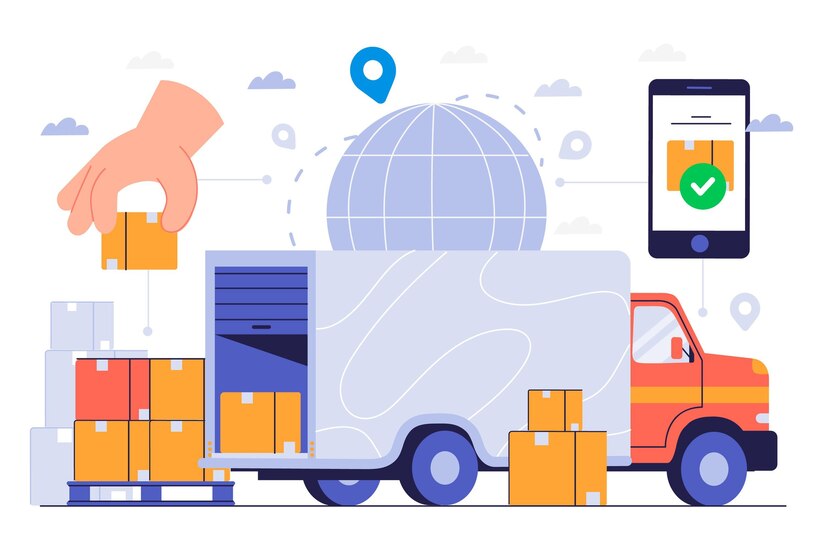To begin with, unified logistics platforms extensively use cloud computing to ensure scalability, flexibility, and accessibility. Cloud technology enables these platforms to handle vast amounts of data while providing real-time access to all stakeholders, regardless of their location. Additionally, Internet of Things (IoT) devices play a crucial role in real-time tracking and monitoring of fleet, inventory, and other critical assets, offering actionable insights to optimize logistics operations.
Artificial Intelligence (AI) and Machine Learning (ML) are also pivotal in the development of these platforms. They empower the logistics management system to predict trends, automate decision-making processes, and enhance overall efficiency. For instance, AI can optimize routes, forecast demand, and even predict maintenance needs for fleet management.
From an engineering perspective, these platforms are designed using microservices architecture to ensure robustness and scalability. This architectural style allows for independent development, deployment, and scaling of individual service components, making the system more resilient and easier to update or maintain.
The standard system design of a unified logistics platform typically follows a hierarchical model, starting with the user interface at the top layer, followed by business logic and service layers, and finally the data storage and access layer at the bottom. This hierarchy ensures that users can interact with the system efficiently, while the backend processes and manages data securely and effectively.
The workflow within a logistics management system is meticulously designed to ensure smooth transitions between different operational stages. From order placement to delivery, each step is interconnected, allowing for automated updates and notifications to stakeholders, ensuring transparency and timely execution of tasks.
By integrating these technologies and engineering concepts, a unified logistics platform can significantly enhance the productivity and efficiency of fleet operations, providing a substantial competitive edge in the logistics sector.
A unified logistics platform offers a comprehensive logistics management system that revolutionizes fleet operations. Integrating advanced technologies and software, this system provides a cohesive environment to monitor, control, and optimize various aspects of fleet management.
The integration of fuel management solutions within a unified logistics platform offers unprecedented benefits. By monitoring fuel consumption patterns, identifying inefficient practices, and suggesting optimization strategies, the platform can significantly reduce fuel costs and enhance operational efficiency.
Real-time data analysis helps in detecting fuel theft or losses, ensuring that fleet operators can take immediate corrective actions. Moreover, predictive analytics can forecast future fuel needs, enabling better budgeting and procurement strategies. Implementing these fuel management practices within the logistics management software not only curtails unnecessary expenses but also contributes to environmental sustainability by reducing the fleet’s carbon footprint.
Vehicle health management is a cornerstone feature of an advanced logistics management system. This solution provides continuous monitoring of each vehicle’s condition, delivering real-time alerts on maintenance needs or potential breakdowns. By anticipating and addressing vehicle health issues proactively, fleet operators can avoid costly downtimes and extend the lifespan of their assets.
The logistics management software facilitates scheduled maintenance, ensuring vehicles are always in optimal condition, thereby enhancing safety and reliability. This proactive approach to vehicle maintenance prevents minor issues from escalating into major problems, ensuring consistent fleet availability and performance.
Driver behavior management is another critical facet of a unified logistics management solution. This system tracks and analyzes driver performance, highlighting areas of risk such as speeding, harsh braking, or erratic driving patterns. By providing this data, the platform enables fleet managers to implement targeted training programs, promote safer driving practices, and potentially lower insurance premiums due to reduced risk. Positive reinforcement and gamification strategies can also be employed to encourage better driving habits, leading to a safer, more efficient fleet operation.
Real-time operations control is a pivotal benefit of utilizing a logistics management system. This feature provides fleet operators with live updates on vehicle locations, route progress, and delivery statuses. With access to real-time data, managers can make informed decisions, reroute vehicles in response to traffic or weather conditions, and optimize delivery schedules. The immediate visibility into fleet operations helps in identifying bottlenecks, improving response times, and enhancing customer satisfaction. Real-time control also facilitates better communication between drivers and dispatchers, ensuring that any issues can be addressed promptly, keeping the fleet operations smooth and efficient.
Implementing a unified logistics platform empowers fleet operations with a suite of integrated logistics management solutions. From fuel and vehicle health management to driver behavior monitoring and digital locking, each solution contributes to a more efficient, secure, and cost-effective operation. Real-time operations control further enhances the platform’s value, providing the agility needed to respond to dynamic operational challenges. By harnessing these benefits, fleet operators can not only achieve substantial cost savings but also elevate their service quality, reliability, and reputation in the competitive logistics industry.
With Taabi, businesses can leverage advanced fuel management systems, ensuring cost-efficiency and eco-friendly operations. The software’s vehicle health management and predictive maintenance capabilities preemptively address potential issues, minimizing downtime and extending vehicle lifespan. Route and payload optimization features are engineered to streamline operations, reducing operational costs and improving service delivery.
Driver behavior monitoring is another pivotal aspect of Taabi’s offering, enhancing safety and efficiency across the fleet. Moreover, the real-time control tower feature provides unparalleled visibility into fleet operations, enabling swift decision-making and operational agility.
Integrating digital locking systems, Taabi ensures the highest security standards, safeguarding assets throughout the logistics chain. This comprehensive logistics management system empowers businesses to unlock mega performance, driving unprecedented efficiency and productivity in their logistics operations.







